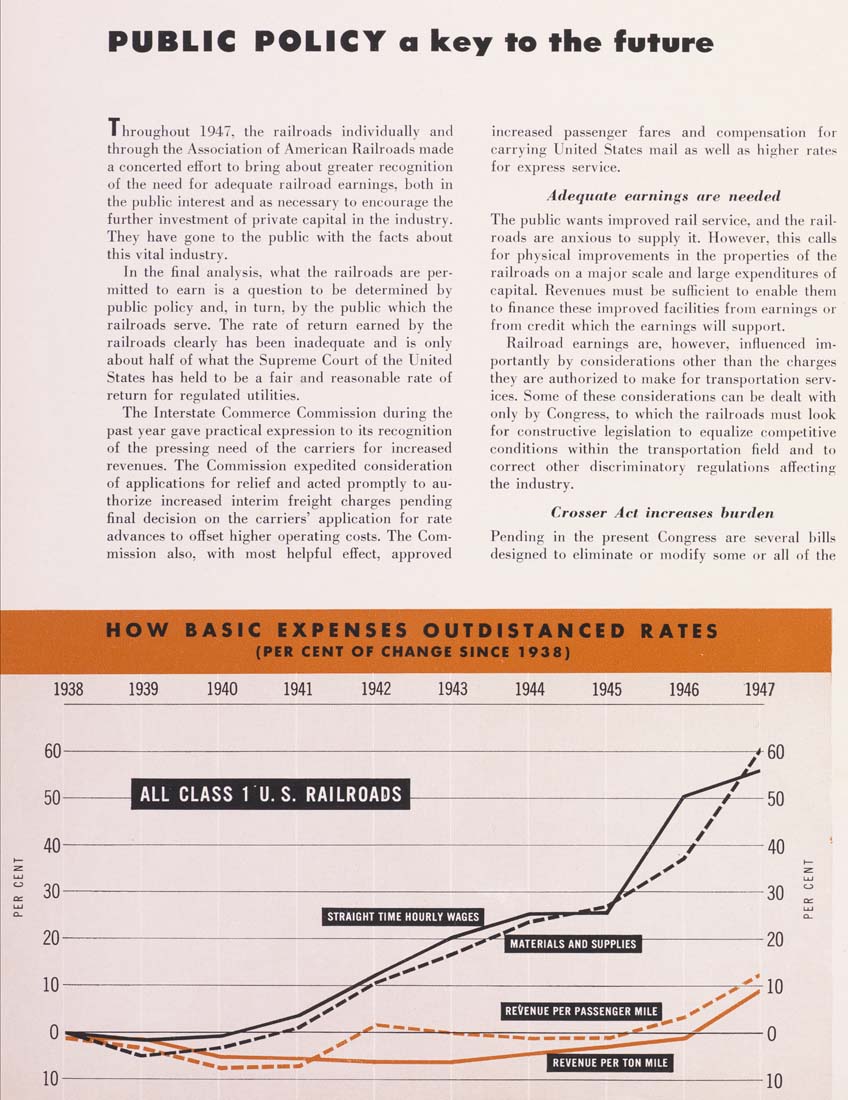PUBLIC POLICY a key to the future
I hroughout 1947, the railroads individually and
through the Association of American Railroads made
a concerted effort to bring about greater recognition
of the need for adequate railroad earnings, both in
the public interest and as necessary to encourage the
further investment of private capital in the industry.
They have gone to the public with the facts about
this vital industry.
In the final analysis, what the railroads are per¬
mitted to earn is a question to be determined by
public policy and, in turn, by the public which the
railroads serve. The rate of return earned by the
railroads clearly has been inadequate and is only
about half of what the Supreme Court of the United
States has held to be a fair and reasonable rate of
return for regulated utilities.
The Interstate Commerce Commission during the
past year gave practical expression to its recognition
of the pressing need of the carriers for increased
revenues. The Commission expedited consideration
of applications for relief and acted promptly to au¬
thorize increased interim freight charges pending
final decision on the carriers' application for rate
advances to offset higher operating costs. The Com¬
mission also, with most helpful effect, approved
increased passenger fares and compensation for
carrying United States mail as well as higher rates
for express service.
Adequate earnings are needed
The public wants improved rail service, and the rail¬
roads are anxious to supply it. However, this calls
for physical improvements in the properties of the
railroads on a major scale and large expenditures of
capital. Revenues must be sufficient to enable them
to finance these improved facilities from earnings or
from credit which the earnings will support.
Railroad earnings are, however, influenced im¬
portantly by considerations other than the charges
they are authorized to make for transportation serv¬
ices. Some of these considerations can be dealt with
only by Congress, to which the railroads must look
for constructive legislation to equalize competitive
conditions within the transportation field and to
correct other discriminatory regulations affecting
the industry.
Crosser Act increases burden
Pending in the present Congress are several bills
designed to eliminate or modify some or all of the
1938
f
H O W B A SI CI X P E N S E S OUTDISTANCED RATES
(PER CENT OF CHANGE SINCE 1938)
1939
1940
1941
1942
1943
1944
1945
1946
1947
|








